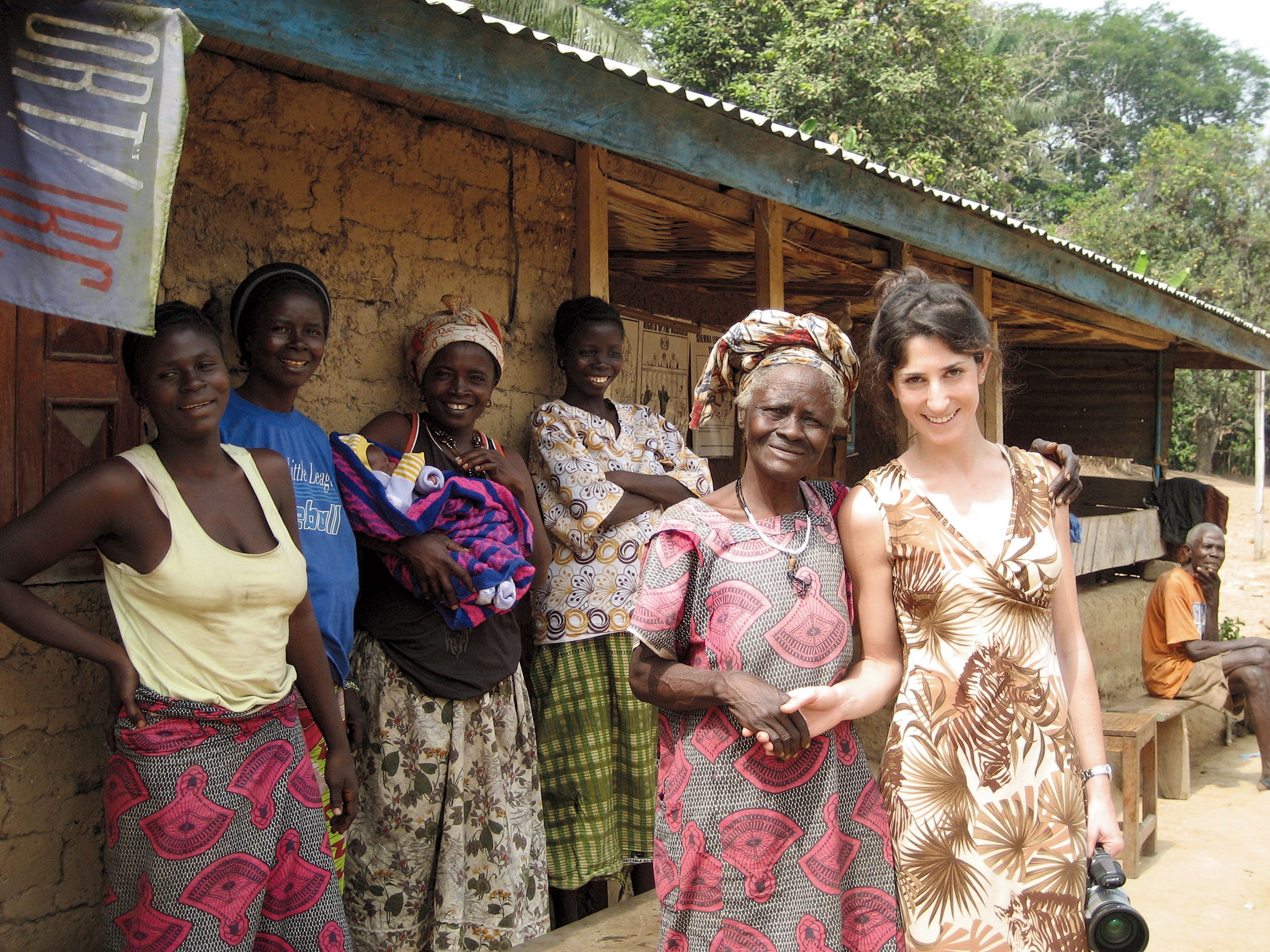Focusing on war crimes through law and film
How should societies deal with the aftermath of cataclysmic war and mass atrocities?
It’s a question documentary filmmaker Rebecca Richman Cohen ’07 has asked former Nuremberg prosecutors. Last summer, it was one she confronted herself as she defended a former rebel leader on trial before the Special Court for Sierra Leone.
During her 2L year, Cohen—who has worked on several films, including Michael Moore’s “Fahrenheit 9/11”—produced a documentary on the legacies of the first international war crimes tribunal at Nuremberg. A few months later, she traveled to Freetown in Sierra Leone to participate in a new type of tribunal.
For more than a decade, the West African nation was ravaged by civil war as factions battled for control over the country’s government and diamond mines. In 2002, the Special Court was established by the U.N. and Sierra Leone to bring those bearing the greatest responsibility to justice—the first tribunal operating under both domestic and international law, located in the country where the crimes on trial occurred.
When Cohen arrived at the Special Court, she was assigned to the defense team for Alex Tamba Brima, one of 11 men indicted (including former Liberian President Charles Taylor). As an alleged leader of the Armed Forces Revolutionary Council (notorious for hacking off limbs), her client faced 14 counts of war crimes and crimes against humanity.
Cohen says she knew her client wasn’t a saint. She saw him—like the criminal defendants she represented the previous summer when she worked for the Bronx Defenders—as a vulnerable human being in need of an advocate. Moreover, she believed working for his defense was an opportunity to strengthen the legitimacy of the court, “bringing the rule of law to bear on these really egregious atrocities.”
It also gave her a front-row look at the working of transitional justice. Of all the international tribunals, she says the Special Court has “done it best,” training local lawyers and doing vigorous outreach.
But as a member of the defense team, she became aware of the complexity of holding individuals responsible for collective violence. Like defendants at Nuremberg who were part of the Nazi killing machine, her client was being prosecuted for the crimes of many. “[But] this is not the Nazis—this is guerrilla warfare,” she observes. “It’s splintered and factioned.” And unlike the crimes of the Third Reich, those in Sierra Leone are not well-documented.
“The Nazis left a great paper trail. Here, you have to establish command responsibility through the testimony of insider witnesses who have a great stake in how this story is shaped,” she says. Some of them may have committed crimes as heinous as those charged against the defendants.
On June 20, the court handed down its first judgments, finding Brima and two others guilty on 11 counts. Cohen has returned to Sierra Leone to begin her next film, a documentary on the trial of a leader of another warring faction.
“The Nuremberg film looked at the trial. I hope that the next one takes a much broader view of transitional justice,” says Cohen. Many of the root causes of the conflict—disenfranchisement and vast unemployment—still exist, she explains, and in order to guarantee justice and protect the peace, reconciliation and development efforts have to work in concert.
“In the aftermath of war, you often find a great moral vacuum; law does some of the work and not all of the work. I hope my film communicates that.”
